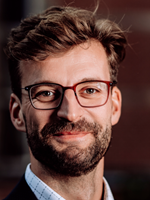Rauws, dr. Ward

Ward Rauws is universitair hoofddocent planologie. Hij is gespecialiseerd in ontwikkeling en planning van steden.
Klimaatverandering, de energietransitie en de vergrijzing: allemaal uitdagingen die vragen om ingrijpende aanpassingen aan de stad. Rauws onderzoekt hoe planologen deze aanpassingen kunnen sturen terwijl hun invloed beperkt is. Ook analyseert hij hoe planologen slimmer gebruik kunnen maken van de ervaringskennis en vindingrijkheid van bewoners en gebruikers. Hierdoor ontstaat een nieuw perspectief op de maatschappelijke betekenis van planning: ruimtelijke ingrepen en beleid dienen niet enkel om problemen op te lossen die we kennen en begrijpen, maar bereiden steden ook voorop het onbekende en onverwachte.
Rauws is lid van de Young Academy Groningen, een groep getalenteerde, enthousiaste en ambitieuze jonge onderzoekers van de RUG. De YAG wil de samenwerking tussen de verschillende vakgebieden aan de RUG stimuleren, een stem geven aan jonge onderzoekers en de buitenwereld laten zien hoe leuk en veelzijdig onderzoek is.
In 2024 is Rauws benoemd als lid van De Jonge Akademie, een landelijk dynamisch en innovatief platform van onderzoekers uit verschillende disciplines met visie op wetenschap en wetenschapsbeleid.
